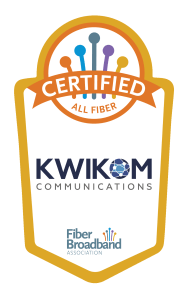Be careful of data caps and throttling when choosing your Internet provider
Many of the big providers like AT&T, Cox, Mediacom and T-Mobile hit you with bill increases and major slowdowns if you exceed a certain amount of Internet usage each month.
In today’s digital age, reliable and high-speed internet is essential for day-to-day living. Remote work, telehealth, and distance learning have seen rising trends since the pandemic. Not to mention, millions of people subscribe to Netflix and use streaming services and gaming for their daily entertainment. But what happens when a person or a family uses too much Internet? Is that a thing? That very much depends on a user’s provider and the company’s policies concerning data capping and fair usage.
What is data capping and fair usage?
Data capping is when an Internet provider places a limit on the amount of data each user can use each month. Fair Usage policies are guidelines set by your internet or phone company to ensure every user gets a fair share of the network without overloading it. This often involves putting limits on how much data you can use (but not always). The idea is to prevent users from monopolizing the network, causing slower internet speeds and unreliable connections for other people using the same Internet provider. When a user consumes too much data on a provider’s network, the company can either implement a hard data cap that stops the user from using their internet services for the rest of that billing cycle or the provider can initiate a slowdown of the user’s services – hindering their connectivity to prioritize other users.
The issues with data capping and fair usage
Many Internet customers have growing concerns about how data capping and fair usage policies will affect their internet usage. Limiting a customer’s connectivity could now be more than a minor inconvenience, especially if they work exclusively from home. An average user might experience dropped video calls, delayed emails, the inability to access shared documents, and a decrease in overall productivity from slow and unreliable internet – overall, affecting an individual’s livelihood.
Less critical, but also important, is how data capping creates buffering issues when streaming, lag when online gaming, and dropped calls with loved ones. While on the surface this may seem minor, these issues can influence a person’s mental health when their services cannot provide them with the entertainment and relief required to recharge after a long day.
Transparency is another critical issue associated with these policies, as users may not be fully aware of the implications when signing up for Internet services. While these terms are typically available on the provider’s web site, their prominence in the sign-up process varies. Some users may not even know to ask about data capping and fair usage policies, which means that information is bypassed altogether from the start of their service. So, always be sure to ask!
T-Mobile is the latest provider to impose slowdowns when data caps are exceeded
And they are just one of many of the big Internet providers with these kinds of policies. You can see the full list here.
While T-Mobile has been a major player in the telecommunications industry for a long time, the company has recently exploded on the internet scene, bringing fixed wireless connectivity to rural areas that previously had very limited options. However, T-Mobile made another major splash in telecoms at the start of the new year by quietly adding a fair usage policy for new customers using their 5G Home Internet service.
The policy (which can be found here) states: “As of January 18, 2024, new T-Mobile Home Internet customers who exceed 1.2TB of data usage for the current billing cycle will be prioritized last on the network.”
Previously, T-Mobile had no such policy, allowing customers to use as much data as they needed with no penalties. However, this quiet addition to their terms now means any customer who exceeds 1.2 TB of data usage will no longer be a priority on their network, causing slower internet speeds and a diminished quality of service. This deprioritization has a direct impact on the day-to-day internet activities of T-Mobile Internet users, affecting remote work, telehealth services, online education, video streaming, online gaming, and more. In essence, the imposition of data caps by T-Mobile undermines the very purpose of having high-speed internet access.
The inconvenience of fair usage policies, especially when coupled with deprioritization, raises concerns about the quality and fairness of internet services provided by T-Mobile and other providers who use these policies.
In contrast to such policies, KWIKOM takes pride in not imposing data caps or slowing down a user’s services, prioritizing a commitment to providing customers with an uninterrupted and premium internet experience. Our vision is to offer customers limitless connectivity, ensuring customers can navigate the digital landscape without arbitrary limitations. Sign up for our services today or give us a call at 800-379-7292 to learn more about KWIKOM’s policies and how we can best serve you!








